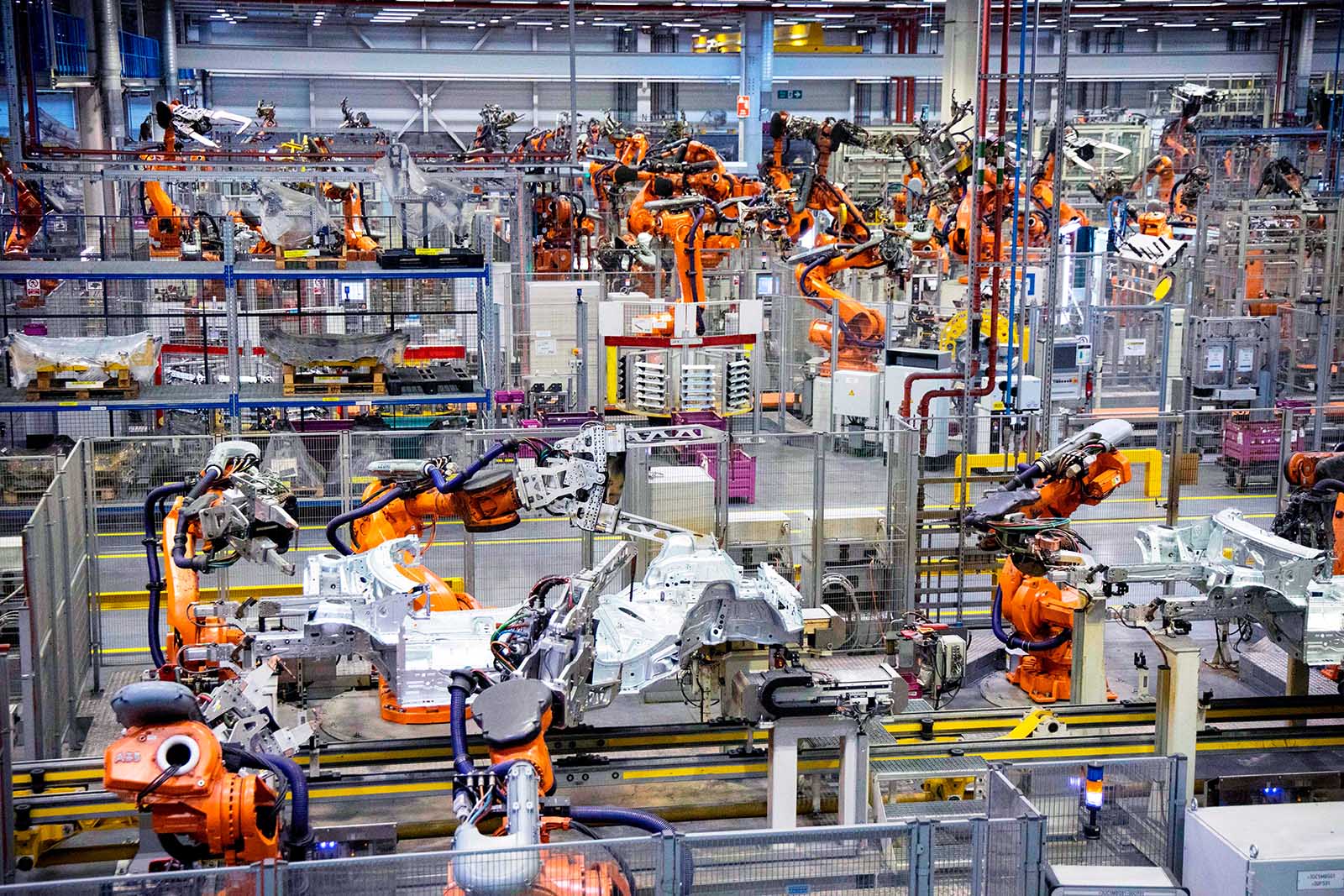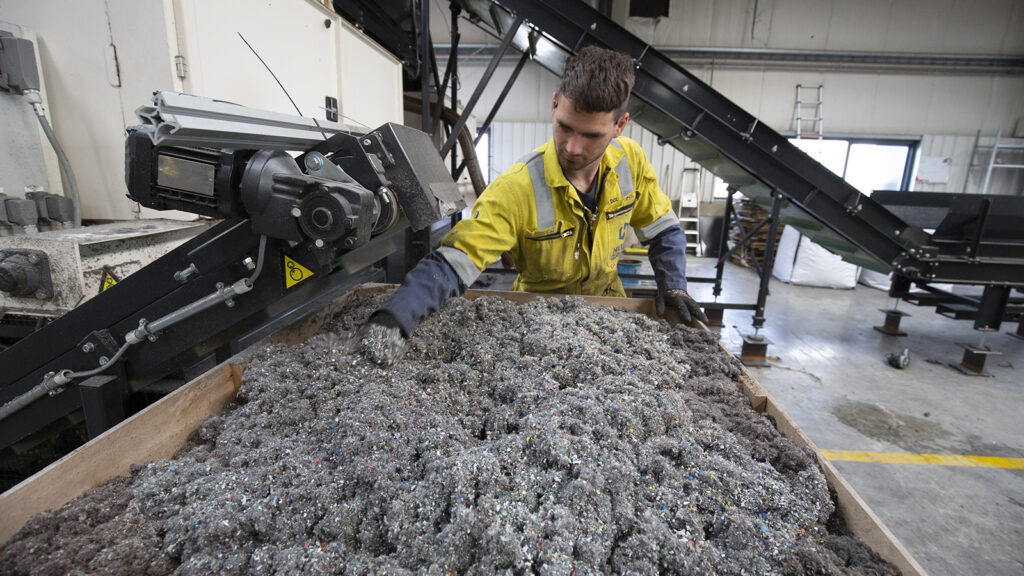Coronavirus Is Changing Global Supply Chains in Unexpected Ways

In the fallout from COVID-19, companies need to be ready to be part of the wider conversation on the future of societies and the role of business.
Photo: Tolga Akmen/various sources/ AFP/via Getty Images
Until now, business models for Industry 4.0, based around automation, autonomous systems and artificial intelligence, have been largely theoretical. The technology has been there without the determination to take on the social and economic shocks involved with implementation.
However, one of the lasting impacts of the COVID-19 crisis is likely to be an acceleration toward the automation of systems and near-shoring. We may see shorter, simpler supply chains with new levels of resilience built in — as well as the all-important new levels of flex and adaptability in strategy and management.
The Fragility of Existing Supply Chains
The pandemic has put the actual nature of global supply chains, integral to the vast majority of businesses, into sharp relief. Free and open movement of goods and services is a fine principle — but loaded with risk, and that risk is accentuated at every stage when there is reliance on people.
Initial disruption to businesses from COVID-19 came in China (and then Italy), affecting the infrastructure and networks of supply chains internationally. Roadblocks and factory closures in a single region led to empty shipping containers stacking up in Chinese ports and shortages of containers in other parts of the globe.
Simply switching away from China for a period was a short-term answer for some, where possible, but ultimately it only changed the risk profile of supplies.
Then came the need to operate with reduced numbers of staff, which affects all fundamental supply chain processes. Most recently, the information systems element has also been exposed. In terms of capacity, the need for human input is clear: Phone lines in London have had terrible quality, for example, and there’s a need for face-to-face contact to validate legal documents.
Business Needs to Be a Part of Policy Decisions
All of these issues with business and their supply chains have accentuated the importance of an underpinning of 4.0 mechanisms with a functionality for commerce and economies as a whole that is independent of constant — and inevitably less reliable — human agency. Nike has been talking for a number of years about its plans to digitize its supply chain and introduce 1,200 automated machines and near-shoring in the U.S., meaning lead times are cut from 60 days to 10 days. The company sees a big reduction in shipping expenses, import duties and risk of over-production. It amounts to 30% fewer steps in the process and provides more resilience.
It is good for Nike’s bottom line and for sustainability impact, but the social implications are grim: The company has talked in terms of 50% fewer employees within one specific supply chain, thus leading to potentially 500,000 job losses, mostly from factories in Asia.
Companies that understand their capabilities and are able to be flexible will survive the coronavirus crisis in the best shape.
There will be no pain-free separation between the old and new ways of running supply chains.
Technologies like autonomous systems and additive manufacturing can’t simply be plugged into vacant spaces. It’s a messy, people-filled environment that means a tangle for technology in terms of implications for corporate strategy, risks and reputation.
So companies will need to be ready to be part of the wider conversation on the future of societies and the role of business. This applies in the context of the fallout from COVID-19, in the economic recovery phase and in the longer-term for balancing situations with the potential to increase the gap between haves and have-nots.
A Return to the Hierarchy of Needs
As always in business, there are winners and losers in any changing set of circumstances. In this case, the lines of demarcation are being drawn between those enterprises that deliver necessities and those that offer luxuries.
The lockdown period has meant a return by populations to focusing on the base areas of Maslow’s hierarchy of needs: food, housing, health care products and, in the 21st century, our need for WiFi and digital connectivity.
There’s the likelihood that in the post-COVID-19 period, at least initially, consumers will feel psychologically attached to these behaviors. Having become used to home delivery, associating them with convenience and safety, it may well be that these models persist and become a larger, more established part of consumer expectations. But there have been associated cost implications for business, with so many home delivery services being provided free or at an uneconomically viable low cost.
Again, that means further impetus for automated alternatives to people in stores and warehouses who are employed for picking and packing.
Flexibility Will Be Critical
The medium-term priority for businesses across sectors will be adaptability.
Companies that understand their capabilities and are able to be flexible will survive in the best shape. We’ve already seen Louis Vuitton and Brewdog switch operations to create hand sanitizer products because they have the basic capability to put liquids into bottles. Automotive firms are making respirators.
An idea that’s gaining increasing traction in logistics is bimodal supply chains, where “mode one” is all about the traditional approach — lean efficiency, mitigating risks — based on there being a good level of predictability; and “mode two” is the need for agility, speed and exploring new opportunities.
For so long, we’ve been used to supply chains based around mode one with two as a secondary, occasional feature. More companies are going to need to become bimodal, with mode two being their priority, quickly recognizing possibilities and building the ability to solve problems posed by the unexpected.








